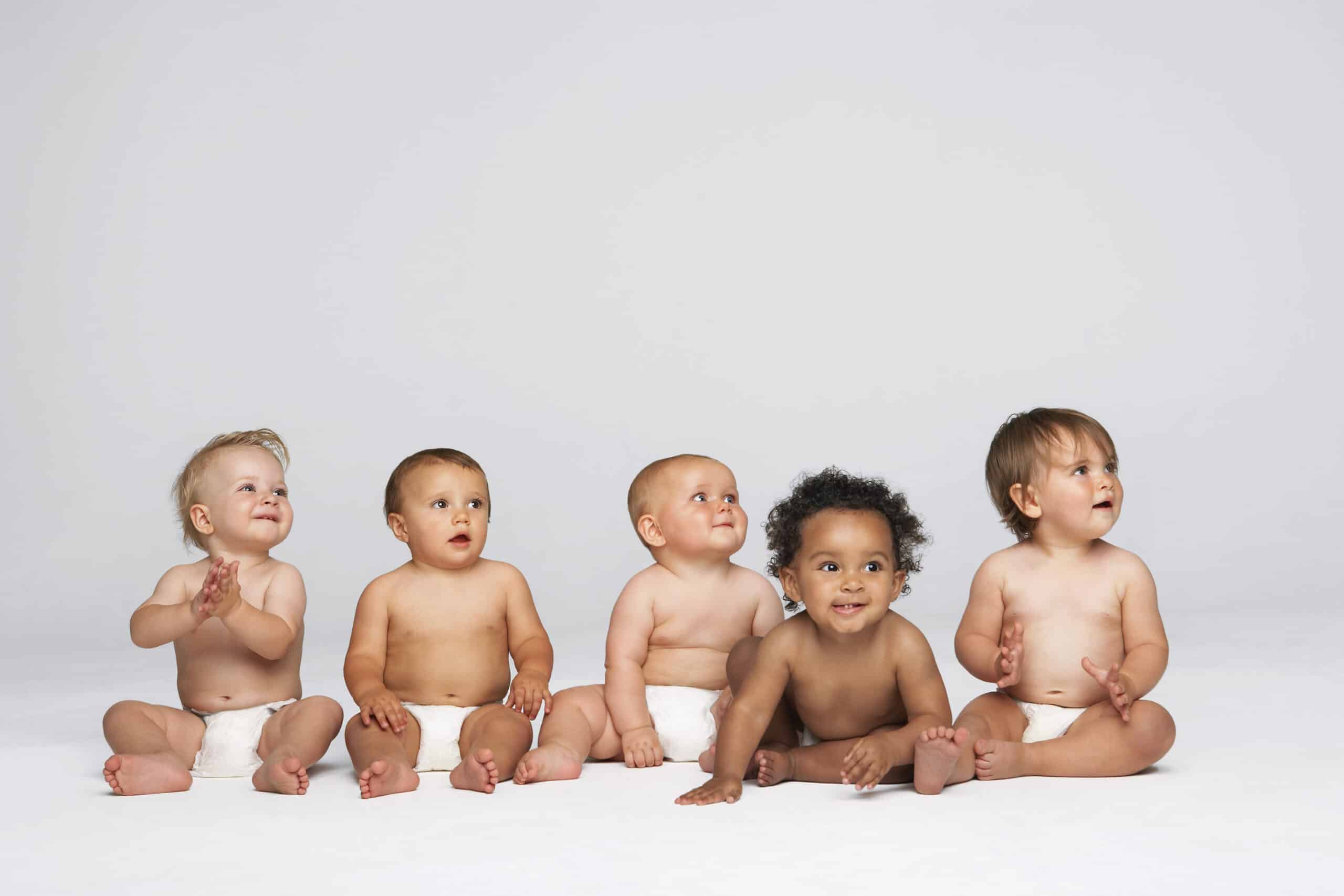Although each state in the U.S. has its differences from one another, when it comes to baby names, they usually stay on track with popularity throughout the country! Today, we're going to take a look at Connecticut‘s most popular baby names, their meaning, origin, as well as their popularity.
Top Boy Names
Connecticut is in the New England region of the United States. Connecticut's population is made up of many different nationalities. The most popular include Polish, Irish, German, and Italian. This representation can be seen in the top ten popular boy names listed below.

©Oksana Kuzmina/Shutterstock.com
Noah
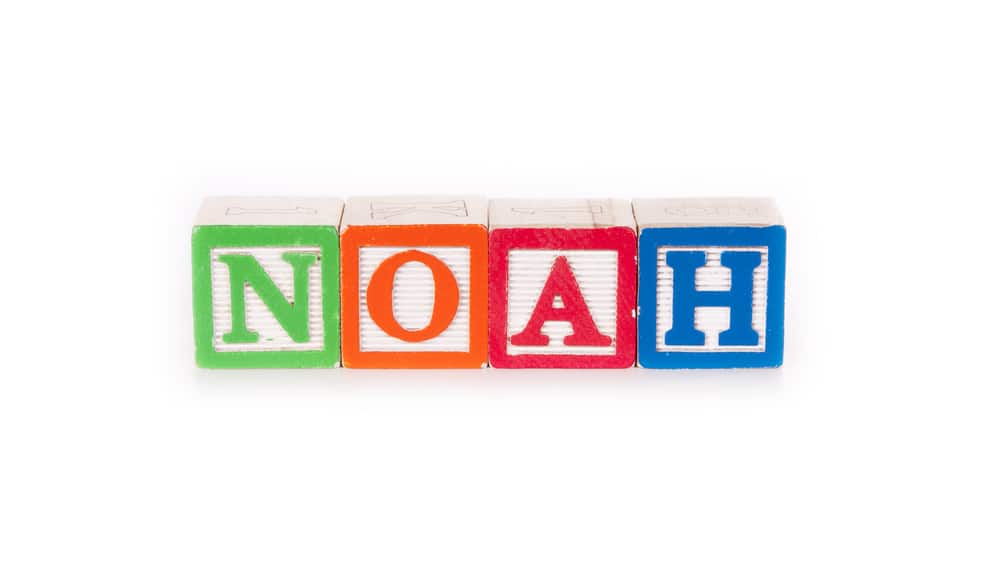
©brackish_nz/Shutterstock.com
The name Noah comes from the Hebrew name Noach. This name means “rest” and “comfort.” Although it is a common and popular name for boys, over the years, it has also become a popular name for girls and is now seen as gender-neutral.
Although this is the top boy name in Connecticut, it is also popular in the U.S. This ancient and historic name has been popular and in the top 10 names since 2009, and currently holds the number one spot. There have also been approximately 453,000 people named Noah in the U.S. since 1880.
Liam

©Africa Studio/Shutterstock.com
The name Liam was created by the Irish when they changed the name Ulliam to William and then later shortened William to Liam. This name means “guardian.” The first person named Liam was recorded in the eighth century. The name was later brought to England in the 11th century, where it became popular across countries.
The name Liam was believed to have made it to the United States when the Irish were forced out of their homeland during the potato famine due to hunger. Many of these people came to Canada and the U.S., where this name became popular in the West. After many years, in 2013, the name hit the top five and later became the number one name in the country in 2017. Since 1880, there have been approximately 275,000 people named Liam in the U.S.
James
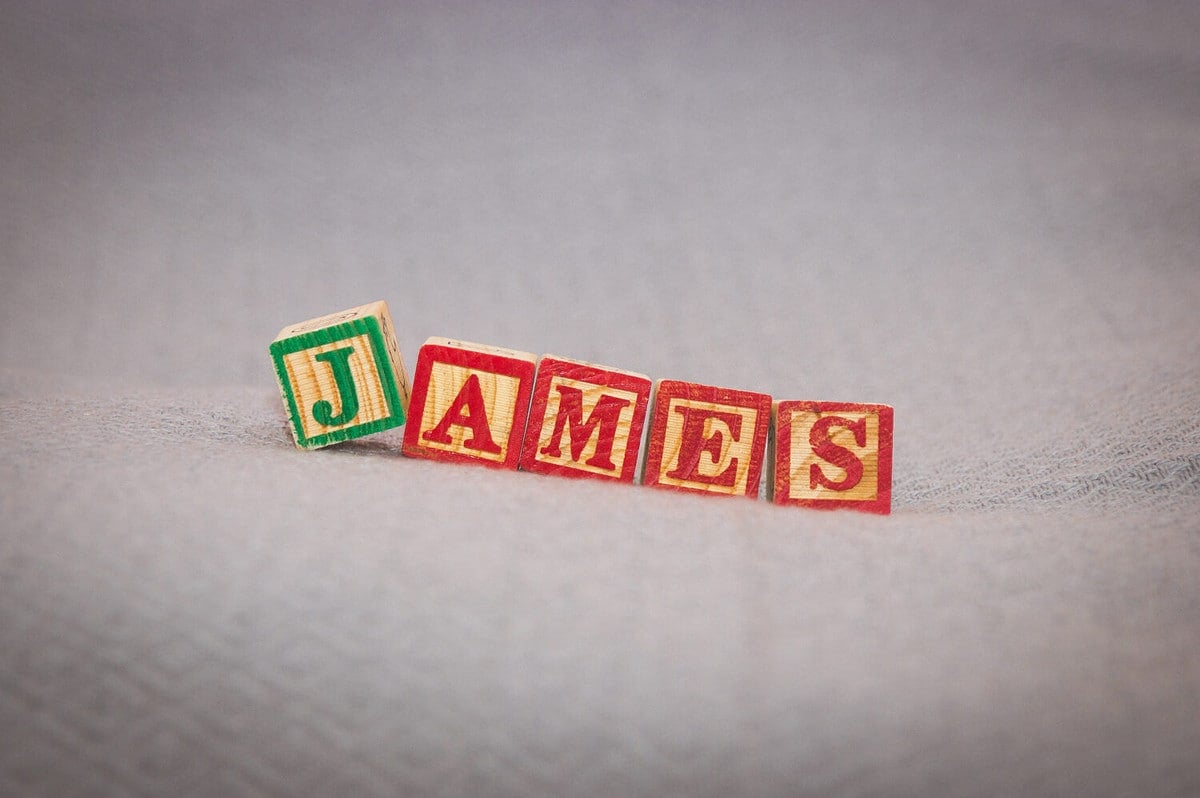
©Qualivity/Shutterstock.com
James also has ancient Hebrew roots. This name is a variation of the Hebrew name Yaakov, which can be translated to Jacob, but in English, it became James. This name means “supplanter” or “one who takes by the heel.” The story behind this name comes from the Bible, when Jacob held on to his twin brother's foot during birth.
James has been a very popular name for years. It has been in the top 20 names for over 100 years. It has stayed a popular name because it is short and traditional. Since 1880, approximately 5.2 million people in the U.S. have been named James.
Theodore
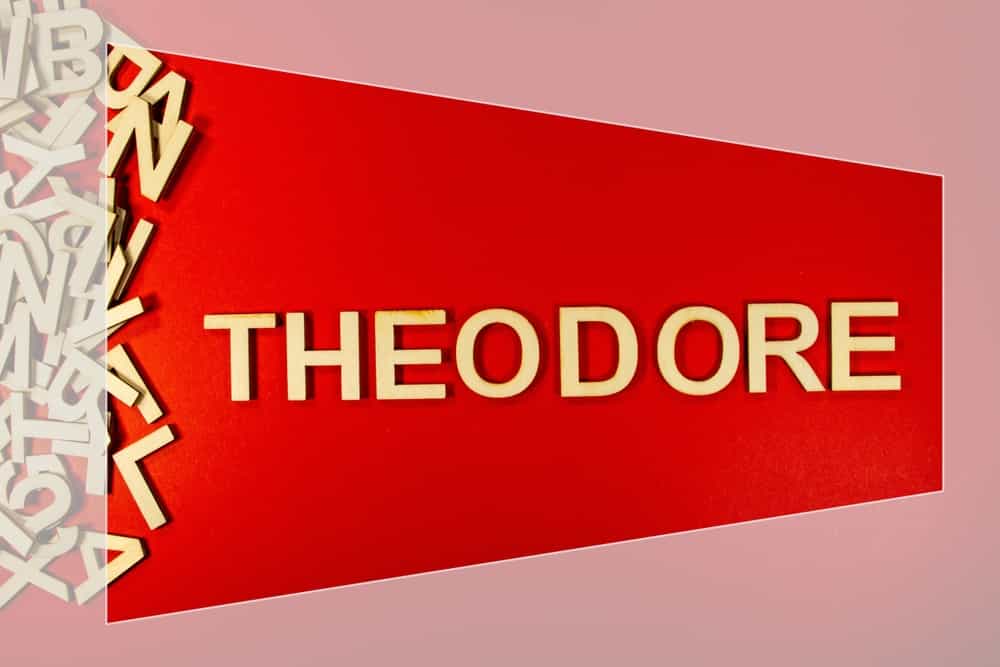
©Ian Peter Morton/Shutterstock.com
The name Theodore has Greek origins and means “divine gift” or “gift of God.” Although it is not technically a Bible name, it was a popular name during the Middle Ages because of its meaning.
Theodore's popularity started rising in 1900 when it was in the top 100 at 61st most popular. It stayed in the top 100 for 45 years until 1945, when it dropped out of the top 100. But, it made an amazing comeback in 2020 when Theodore was ranked the 23rd most popular name in the United States. Since 1880, there have been approximately 271,000 people named Theodore in the U.S.
Oliver
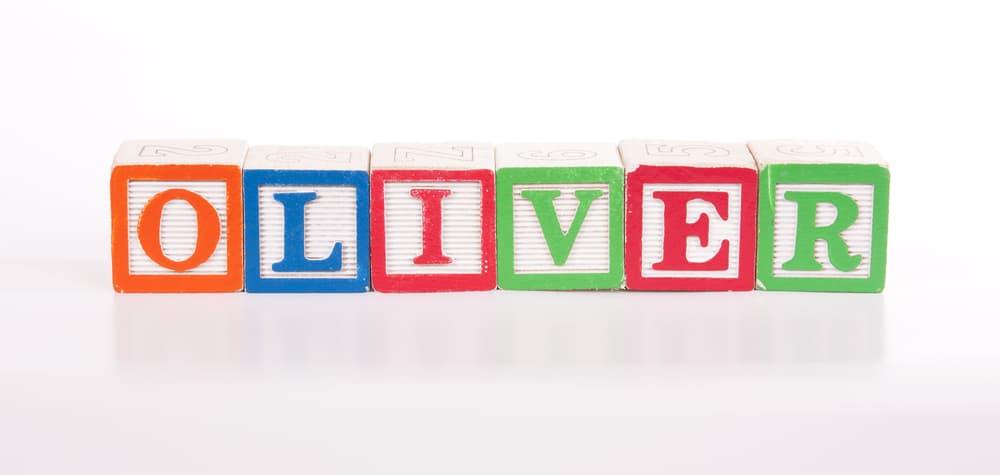
©brackish_nz/Shutterstock.com
The name Oliver is known to have English, Latin, and French descent. The name was introduced to England by the Normans, whose old Norse name was Aleifer. This name means “ancestor's descendent.” Its French roots come from the word Olivier, meaning “olive tree.” The Latin word was oliva, meaning “olive.” The transition of the word to Oliver made it a popular and common medieval name.
In the U.S., Oliver was a popular name in 1900 and the top 100 at 95th most popular. Not long after, it lost its spot in the top 100 but made a re-entrance in 2014 at 32nd most popular. It even moved up to the third most popular in 2020. Since 1880, there have been approximately 210,000 Olivers in the United States.
Benjamin

©alinabuphoto/Shutterstock.com
Benjamin is of Hebrew origin. In the Bible, Benjamin was one of Jacob's 12 sons. In Hebrew, Benjamin means “son of the right hand.” If you've ever heard the phrase “the Benjamin of the family,” this means the youngest child, referring to Jacob's family in the Bible because Benjamin was his youngest son.
Benjamin has been popular for a long time. It's been in the top 100 names in the United States since 1968. Soon after, it was in the top 50. In 2009, it was in the top 20, and in 2016, it hit the top 10. Since 1880, there have been approximately 788,000 people in the U.S. with the name Benjamin.
William

©Ian Peter Morton/Shutterstock.com
The name William has English and German roots. It is believed to have German origins and was brought to England by William the Conquerer. The name was Wilhelm before it became William, meaning “strong-willed warrior” or “resolute protector.” These meanings come from the breakdown of Wilhem, “wil,” meaning desire or will, and “helm” protection or helmet.
The name William has been around for centuries. It has been in the top 20 names in the United States since 1900 and was in the top 10 for 75 years straight. After that, it continued to grow and hit the top five in 2020. Since 1880, there have been approximately 4.2 million people named William in the United States.
Jack
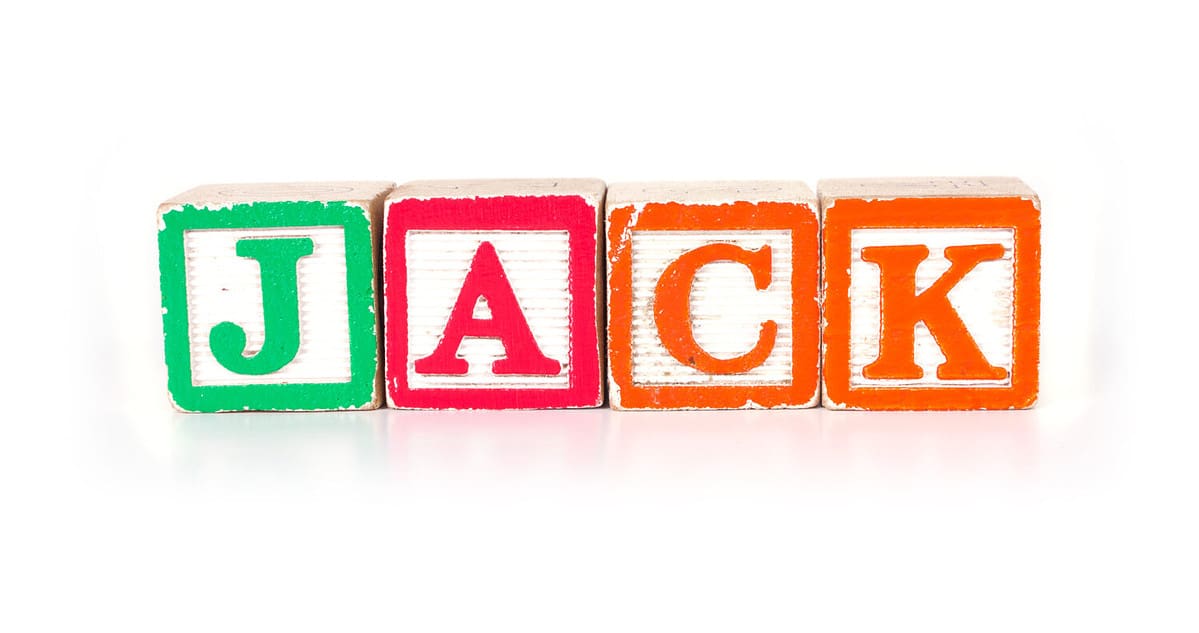
©brackish_nz/Shutterstock.com
The name Jack has English roots and dates back to medieval times. Jack is a derivative of the name John. John became Johnkin, which then became Jankin, which turned into Jackin, and lastly, morphed into Jack. It's also believed that Jack has some Celtic origin, with the name meaning “full of vitality, strong, and healthy.”
Since 2000, Jack has been in the top 50 most popular names in the United States. It's also been very popular overseas in Scotland, Ireland, England, Australia, and New Zealand. Since 2020, Jack has been on the top 10 list in these countries. Since 1880, there have been 725,000 people named Jack in the United States.
Lucas
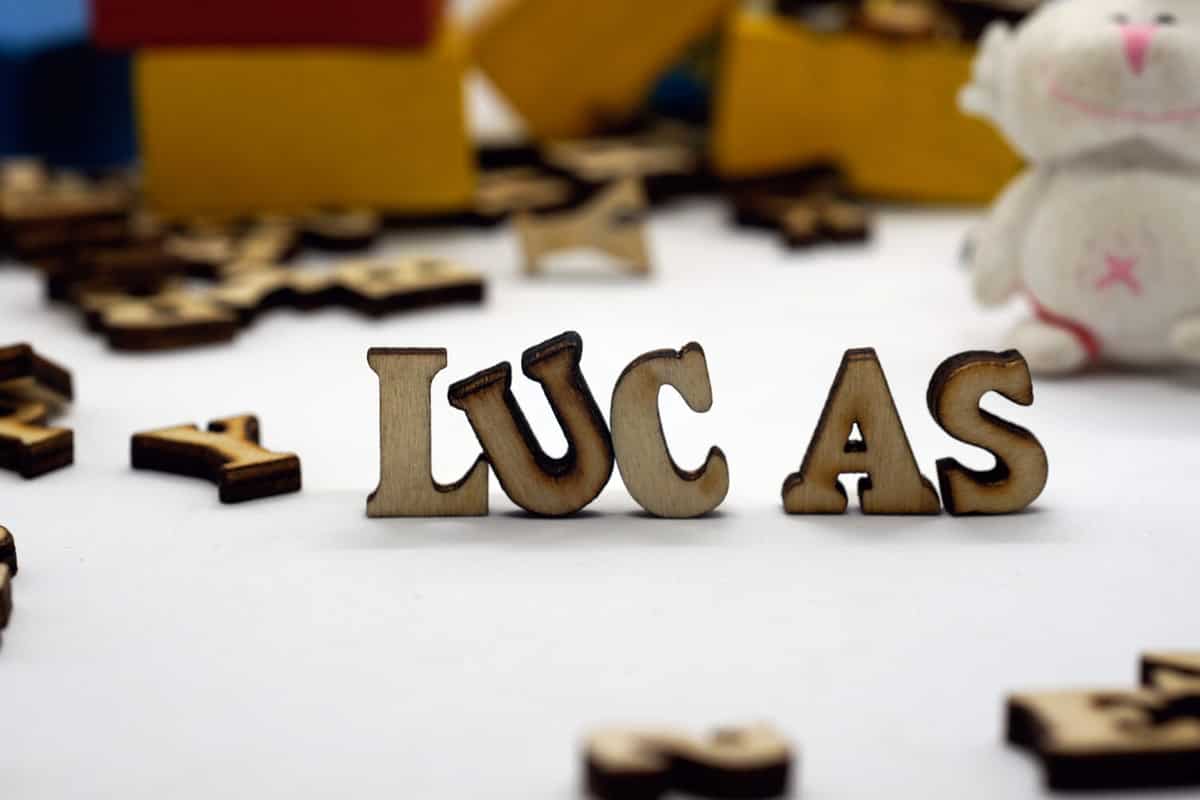
©Stefan Petersohn/Shutterstock.com
Lucas is a name that has Greek and Latin origins. Originally, the name was Loukas. Funnily enough, the name Lucas translates to “man from Lucania,” which is a part of Southern Italy where the name was believed to mean “light.” This relates to the Latin translation of the name Lucas, which means “bringer of light.”
Lucas has been a popular name for a few decades. It was listed in the top 100 most popular names in the United States in the 1990s and continued to make its way up the list. At the end of the 2010s, it had made its way up to the 17th most popular in the country. Since 1880, there have been approximately 288,000 people named Lucas in the U.S.
Luca

©Ian Peter Morton/Shutterstock.com
Luca is a Latin name, and similar to Lucas, it means “bringer of light.” It is believed to have been derived from the word lucus, which means “sacred wood.” It also has the same origin story as Lucas regarding Southern Italy and the name meaning “man from Luciana.”
Luca is a newly popular name. Because of this, we're not exactly sure of the reason for its rise in popularity yet. It could be thought to have become more popular in recent years because of the Disney movie “Luca” being released in 2021. It's possible that this movie, which portrays an Italian family, could have popularized the name Luca in the United States and around the world. But only time will tell us more about Luca's growth. Since 1880, 46,000 people have been named Luca in the United States.
Top Girl Names
Many of the top girl names in Connecticut are also popular in the country, except for the two last names, which are specifically popular in the Connecticut area. Here are the top ten girl names in Connecticut.

©Bluemoon 1981/Shutterstock.com
Charlotte
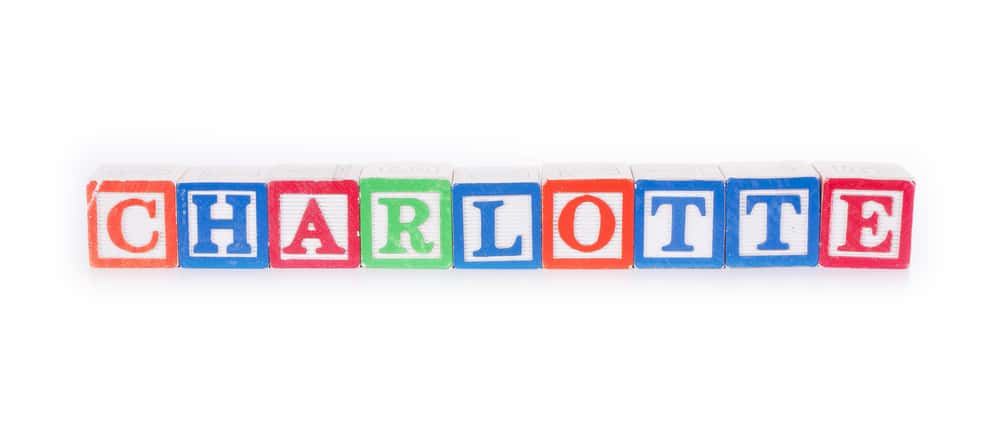
©brackish_nz/Shutterstock.com
The name Charlotte was derived from its masculine equivalent, which is Charles. Charles is a derivative of the old English word “ceorl.” Ceorl means free man. Charles is also the French way to spell the German name Carl. Charlot became a nickname for the name Charles, and Charlotte is the female variation of Charlot.
Charlotte was a popular name in the United States from 1908 to 1953, being in the top 100. It dipped out of the top 100 for a while after this until it returned to the top 100 list in 2007. Since then, it's continued to rise and found itself in the top 10 in 2014. It was even in the top 5 in 2020. Since 1880, 402,000 people in the United States have been named Charlotte.
Olivia

©shine.graphics/Shutterstock.com
Olivia has English and Latin origins. It is a derivative of the name Oliver, so similarly, the Latin name translates to “olive tree.” Its popularity dates back to the 13th century in England. It's believed to have gained popularity from the Shakespeare play called Twelfth Night.
In 1990, Olivia was a very popular name in the United States, the United Kingdom, Canada, and Australia. It has been in the top 100 most popular names in the U.S. since 1990 and hit the top five in 2014 after the premiere of the show Scandal, whose main character's name was Olivia. It also held the number-one spot in 2019 and 2020. Since 1880, there have been approximately 507,000 people named Olivia in the United States.
Emma

©Africa Studio/Shutterstock.com
The name Emma has English roots from a Germanic word that means “universal” or “whole.” It became popular in England because of Emma of Normandy. Emma of Normandy married two English Kings, Althelred the Second and Cnut the Great. It also gained some traction as the name Emma was used by Jane Austen in her novel titled Emma, which was published in 1816.
Starting in 1880, Emma was in the top 100 names in the United States for 41 years before it started falling off. But, it gained popularity again in the 1990s. Emma gained traction in 2003, hitting the number two spot because the TV show Friends used the name Emma for Ross and Rachel's baby. Just five years later, Emma became the number-one name in the United States. Since 1880, approximately 723,000 people in the United States have been named Emma.
Amelia
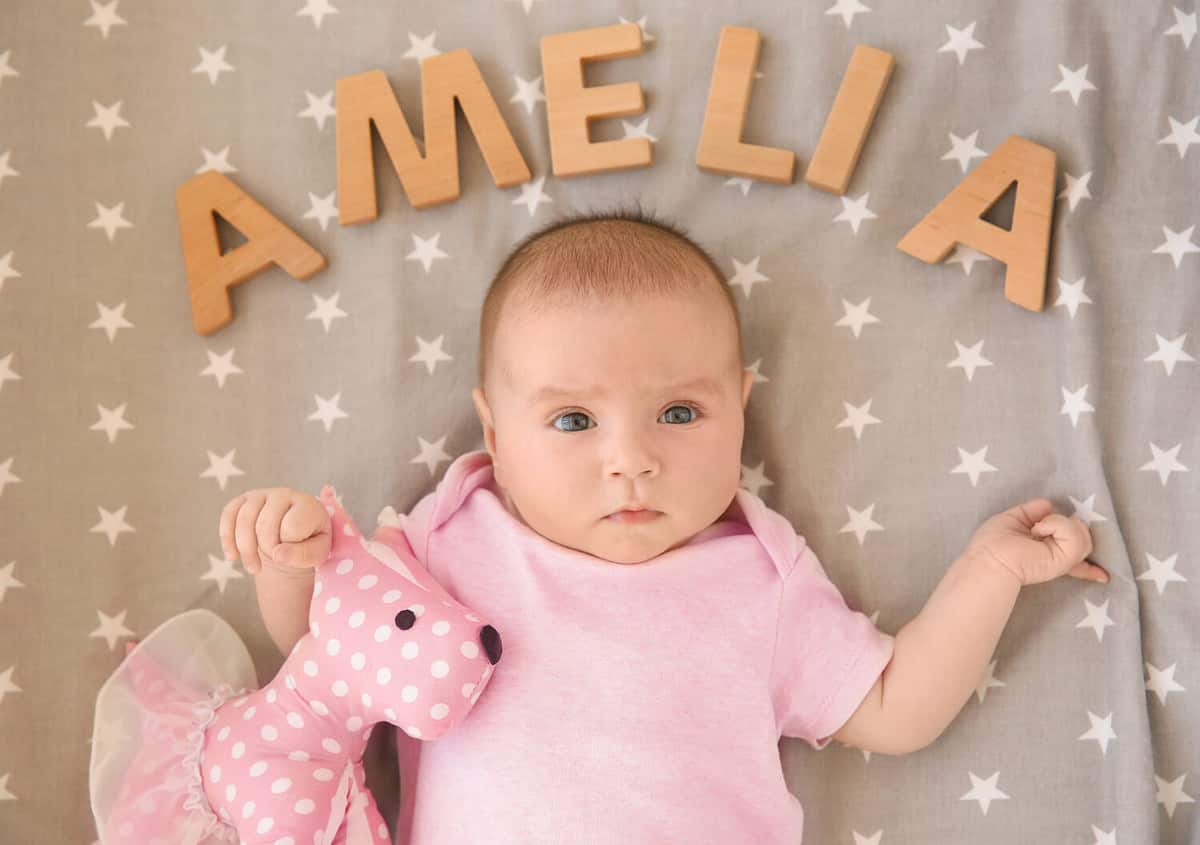
©Africa Studio/Shutterstock.com
Amelia has a Latin origin. The root word of Amelia is Amal, meaning “work.” The Latin translation of this work does not mean labor but rather fertility and industriousness. Amelia is known to be the feminine version of the following names: Emil, Emery, and Emmett.
Amelia became popular in the 18th century when the European Kings, King George the Second and Third, had daughters named Amelia. It has seen most of its popularity in the last couple of decades. It was most popular when it was America's sixth most common name in 2020. Since 1880, 231,000 people in the U.S. have been named Amelia.
Sophia
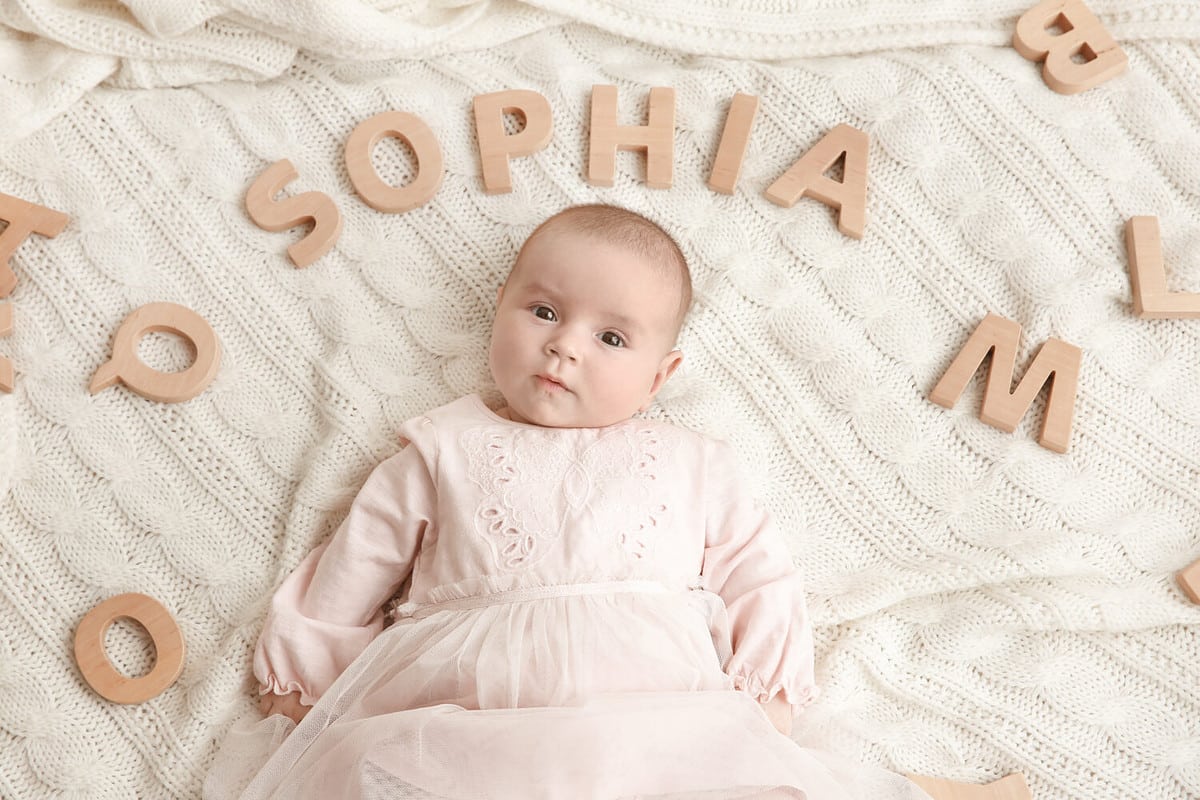
©Africa Studio/Shutterstock.com
The name Sophia has Greek origin. It means “wisdom.” Sophia is believed to portray elegance, sophistication, and beauty. It was first popularized by the Greek Orthodox Church when Saint Sophia was celebrated by the religion. Then, it also became a popular royal name in Europe during the Middle Ages.
Sophia has been a very popular name for a long time. Since 2006, it has consistently been among the top ten names in the United States. It had a three-year run and was number one starting in 2011, and then it stayed in the top five after that. Over recent decades, names tend to become popular due to TV characters or famous people, but this isn't the case for Sophia. Sophia is a rare name in Hollywood. It is believed to be popular because it is a classic vintage name, which many families have leaned toward in recent years. Since 1880, in the United States, there have been approximately 390,000 people named Sophia.
Ava

©MIA Studio/Shutterstock.com
The exact origin of the name Ava is unclear, and because of this, there are several meanings. The German word aval means “guarantee.” The Latin word avis means “birdlike.” Ava is also considered to be a variation of the names Eva and Eve, which are Hebrew names meaning “lively” or “life.”
Ava is a newer name that has gained popularity. It had some fame in the 1950s when there was a popular movie star named Ava Garder. The name didn't start gaining traction until the late 1990s when movie stars like Reese Witherspoon and Heather Locklear named their daughters Ava. After that, Ava quickly gained traction and landed a spot in the top five names in 2016. Since 1880, approximately 307,000 people have been named Ava in the United States.
Mia

©Africa Studio/Shutterstock.com
The name Mia is believed to have a handful of origins. It is a derivative of the Hebrew name Miryan. It's also believed to come from the Egyptian word “Mr,” which means beloved. It is connected with the Italian word “mia,” which means mine. And lastly, it's a derivative of the Slavic word “Mila,” which means darling or dear. Mia is also commonly known as a derivative of the name Maria in the Bible. But Mia quickly surpassed Maria in popularity.
The name Mia is newer to fame in the United States and was first recorded in the 1960s. It really began to gain popularity in the 1990s. In 2002, it made its way into the top 50 list and then into the top 10 in 2009, where it has stayed consistently since. Approximately 260,000 people have been named Mia in the United States since 1880.
Isabella
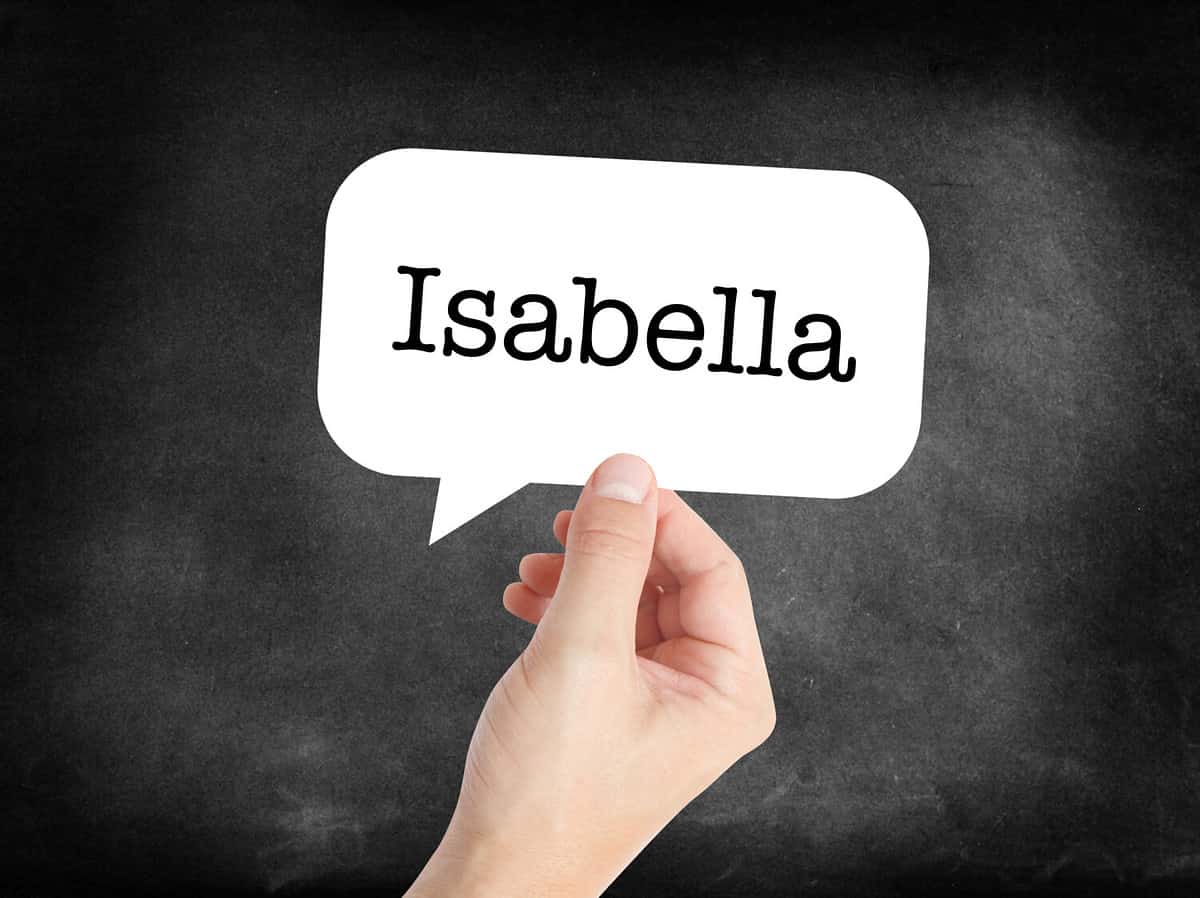
©Happy Stock Photo/Shutterstock.com
Isabella has Italian and Spanish origin. Essentially, Isabella is the Italian and Spanish version of Elizabeth. Elizabeth is a derivative of Elisheba, a Hebrew name that means “God is my oath.” Both of these names have been around for many centuries. Isabella is also known to be the female version of the name Isa, which means “salvation of God.”
Isabella has been around for many centuries, but started gaining popularity in the 1990s. It broke through to the top 100 most popular names in the U.S. in 1998 and then into the top 10 in 2004. Whether by coincidence or not, the popularity of the name skyrocketed at the same time that the movie Twilight was released, with the main character being Bella (Isabella) Swan; it claimed the number one spot in 2009. It stayed in the top five names until 2019. Since then, it has stayed in the top 10 names. Approximately 373,000 people have been named Isabella in the U.S. since 1880.
Ella

©Go My Media/Shutterstock.com
Ella has English roots but has some Germanic origins. It was initially used as a prefix that was spelled Alia. It means “other” and was used before other names. For example, Queen Eleanor of Aquitaine was named Aenor. Aenor was her mother's name, so the queen was called Alia Aenor, which translates to “the other Aenor.” Ella has also been used as a suffix, adding it to a masculine name to make it feminine. For example, Gabriel becomes Gabriella.
Ella was a consistently popular name in the early 1900s. At the start of the century, it was in the top 100 names and then stayed on that list for 28 years. It fell off for about 63 years and then made its way back into the top 100 in 1992. It quickly gained popularity in 2003 when it made it into the top 50 names, and then just five years later, it hit the top 20, where it has stayed consistently. Since 1880, approximately 328,000 people have been named Ella in the United States.
Mila
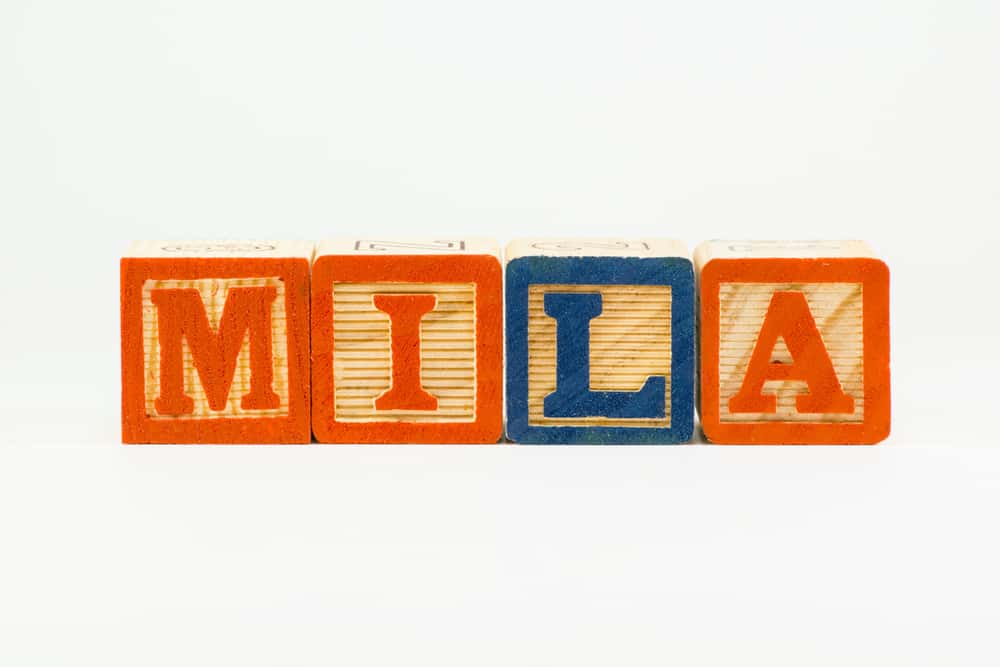
©Jac Cowan/Shutterstock.com
Mila is a common name around the world, so it has many meanings! In Spanish, it was derived from Milagros, which translated to “miracles.” Mila also means miracles in Italian. In Russian, Mila means “dear one” or “gracious.” It is believed that Mila was once a nickname for people named Emila or Camila, but it has since become its own name.
In Hollywood, Mila Kunis came to stardom in 1998 when she starred on That 70's Show. She also gained popularity in the 2000s for large movies she was in, like Black Swan and Forgetting Sarah Marshall. Her fame is believed to have contributed to the popularity of the name in the U.S., and in 2013, it made its way into the top 100 and then broke into the top 20 list in 2020. Since 1880, approximately 62,000 people have been named Mila in the United States.
The image featured at the top of this post is ©sirtravelalot/Shutterstock.com.
